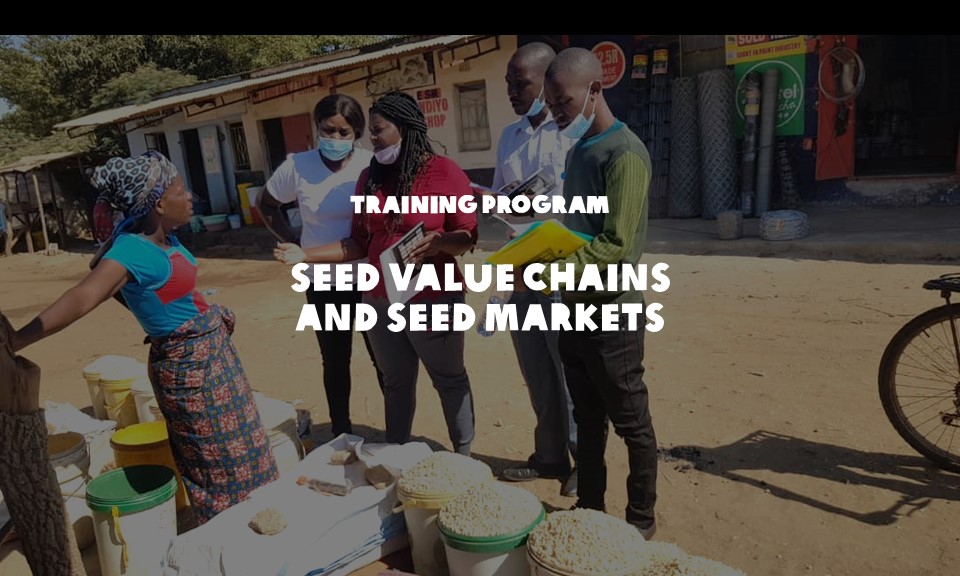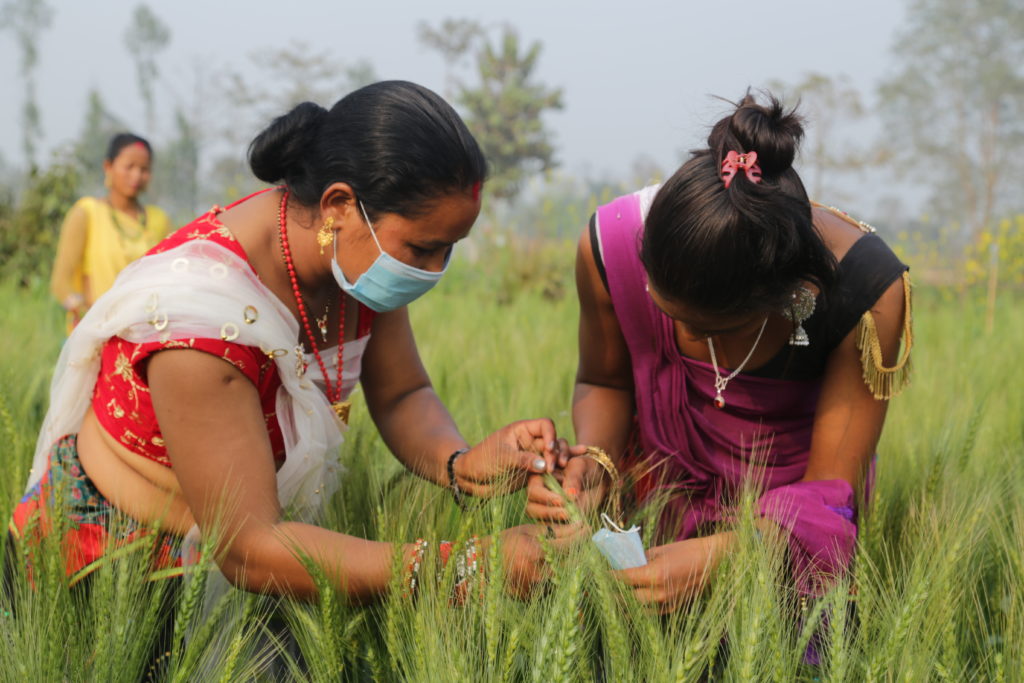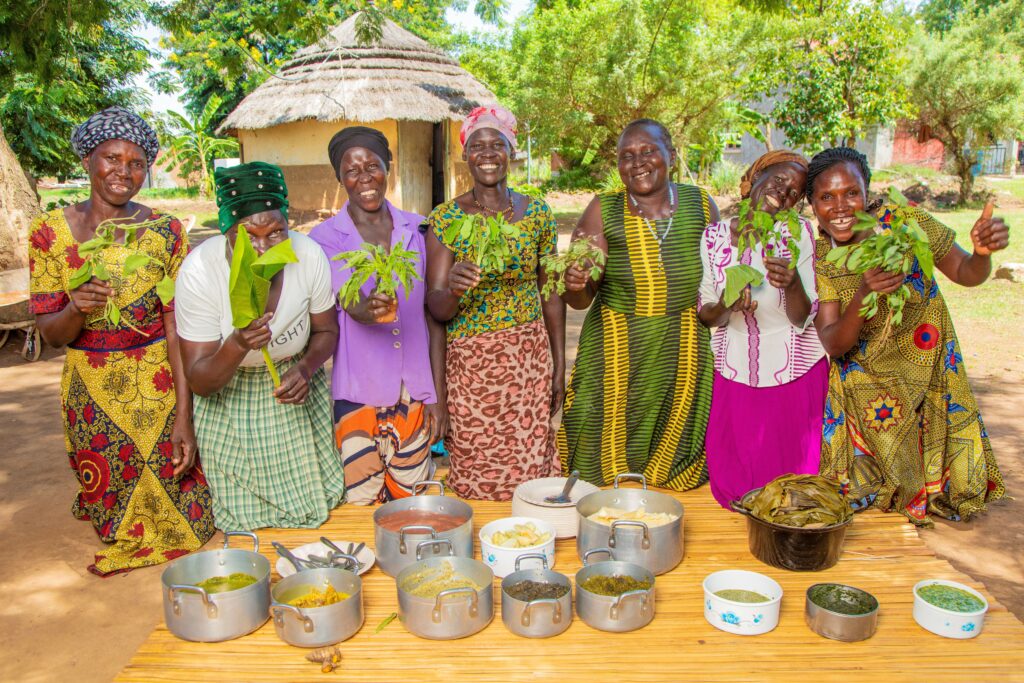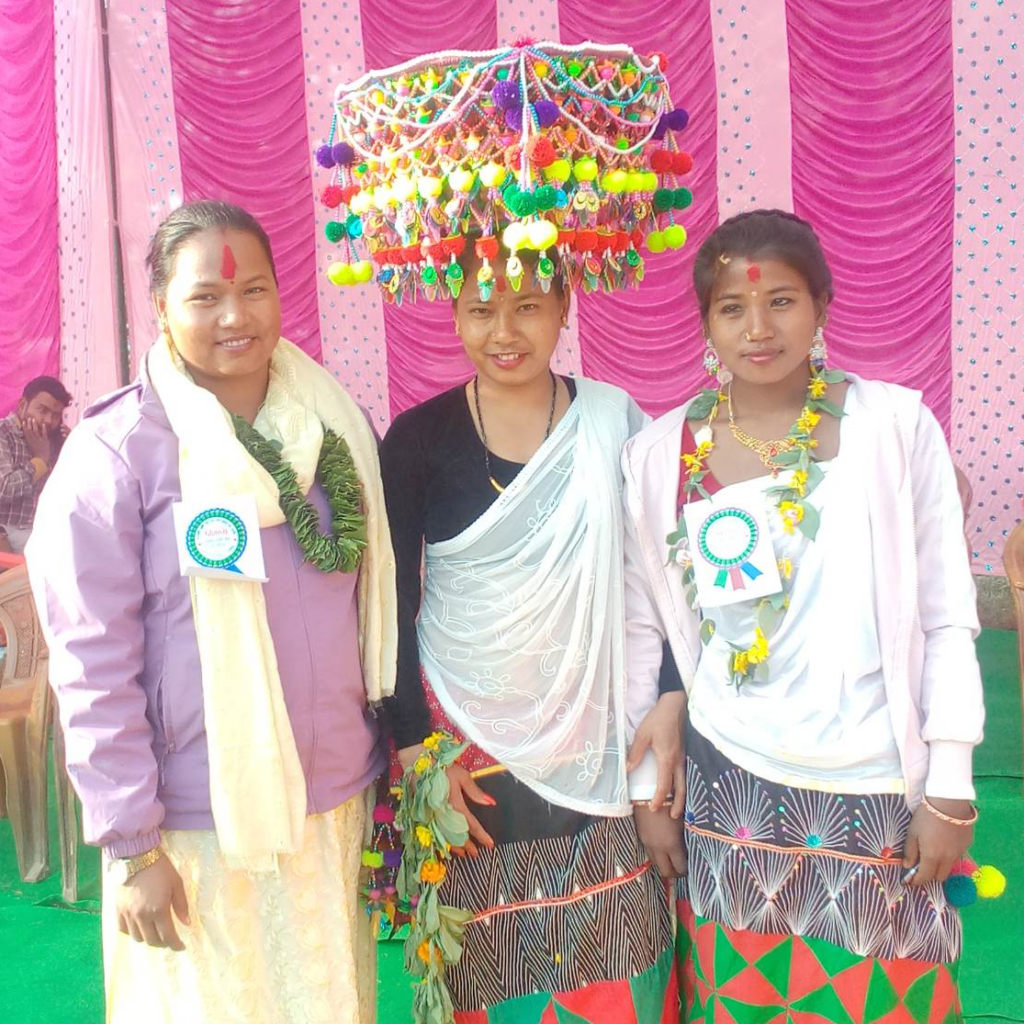Building the capacity of smallholder farmers to produce quality seeds for the market takes long term investment and support. This support starts with a strong core team of technical experts to support seed producing farmer groups.
From 26 to 28 October SD=HS organized two hour online trainings on seed value chains and seed markets for national partners supporting Farmer Seed Enterprises and implementing the Farmer Field Schools on Seed Production and Marketing. The training builds on the Training of Trainers (TOTs) for Seed Production and Marketing that took place in April and May 2021. Focused on smallholder farming contexts, participants were taken through critical elements of commercial seed production and marketing. Hosted by the SD=HS team in The Hague, the training was led by John MacRobert, an experienced seed business manager and director of Mukushi Seeds based in Zimbabwe. Participating were national partners from China, Nepal, Uganda, Zambia, Zimbabwe, Peru and Guatemala.
Within SD=HS, national partners who participated are engaged in different levels of seed production and marketing and work with diverse crops. For an appreciation of the training, we invited our partners in Zambia to reflect on their experience being in the training. In response, Joseph N. Mwitumwa, Seed Production and Marketing Officer with the Community Technology Development Trust (CTDT) in Zambia expressed that the training was insightful and informative because it focused on practical aspects of establishing and running a seed business. This included an in-depth look at finance and administration, seed production and marketing bring in the experiences of a successfully operating seed business. Joseph feels he learnt a number of important aspects of commercial seed production such as how to identify a target market segment. Here the identification of customer segments, how to divide customers into groups based on common characterizes such as gender, farm size, type of buyer and location are some of what he found most interesting. Of further interest was learning how customer segmentation can effectively create and communicate targeted marketing messages that resonate with specific customer groups, facilitate product improvement, and effectively lead to increased market share for farmer seed enterprises.
He was equally appreciative of the session on the Business Model Canvas and the accompanying seed model canvas which he found marries well with his work on implementing the farmer field school on seed production and marketing. For Joseph, building on the Guide and Toolkits for the FFS on seed production and marketing, the session on the canvas touched on critical the “virtues, vision and vitals” -that are essentially the pillars of operational excellence key to running an FSE. For Joseph, who will be coordinating the implementation of the FFS on seed production and marketing in Zambia, the training came at the right time as they enter the rain season. He is confident that he and his colleagues will put the knowledge gained to good use within their FFS.
Joseph found the training to be interactive and allowed participants to raise key questions during the sessions. The only downside, in view of the interest and feedback from the participants during the sessions, was that time was somewhat limited. An extra couple of hours per day, or even a whole extra day would have allowed for additional plenary discussions.









